Wastewater

Aqua's Wastewater Services
Over the last 135+ years, Aqua has focused on maintaining the technology to treat your community’s wastewater in compliance with all local, regional and national environmental quality and public health standards. This is not simply a department – this is our entire purpose. We are constantly investing in our infrastructure and technology to ensure that our methods are respectful of the environment and adhere to current and future guidelines and standards set by the national Environmental Protection Agency, as well as state and local regulations.
Understanding the Wastewater Treatment Process
A typical domestic wastewater treatment plant uses both biological and physiochemical processes to render the wastewater harmless to the environment. The treated wastewater is frequently discharged to surface water. However, for water conservation reasons, it is frequently discharged to the ground using a variety of methods including spray irrigation, drip irrigation, and infiltration galleries designed to replenish the aquifer. The treatment process generates nutrient rich biosolids that are usually land applied, decreasing the need for fertilizer. The diagram below shows a typical domestic wastewater treatment plant process.
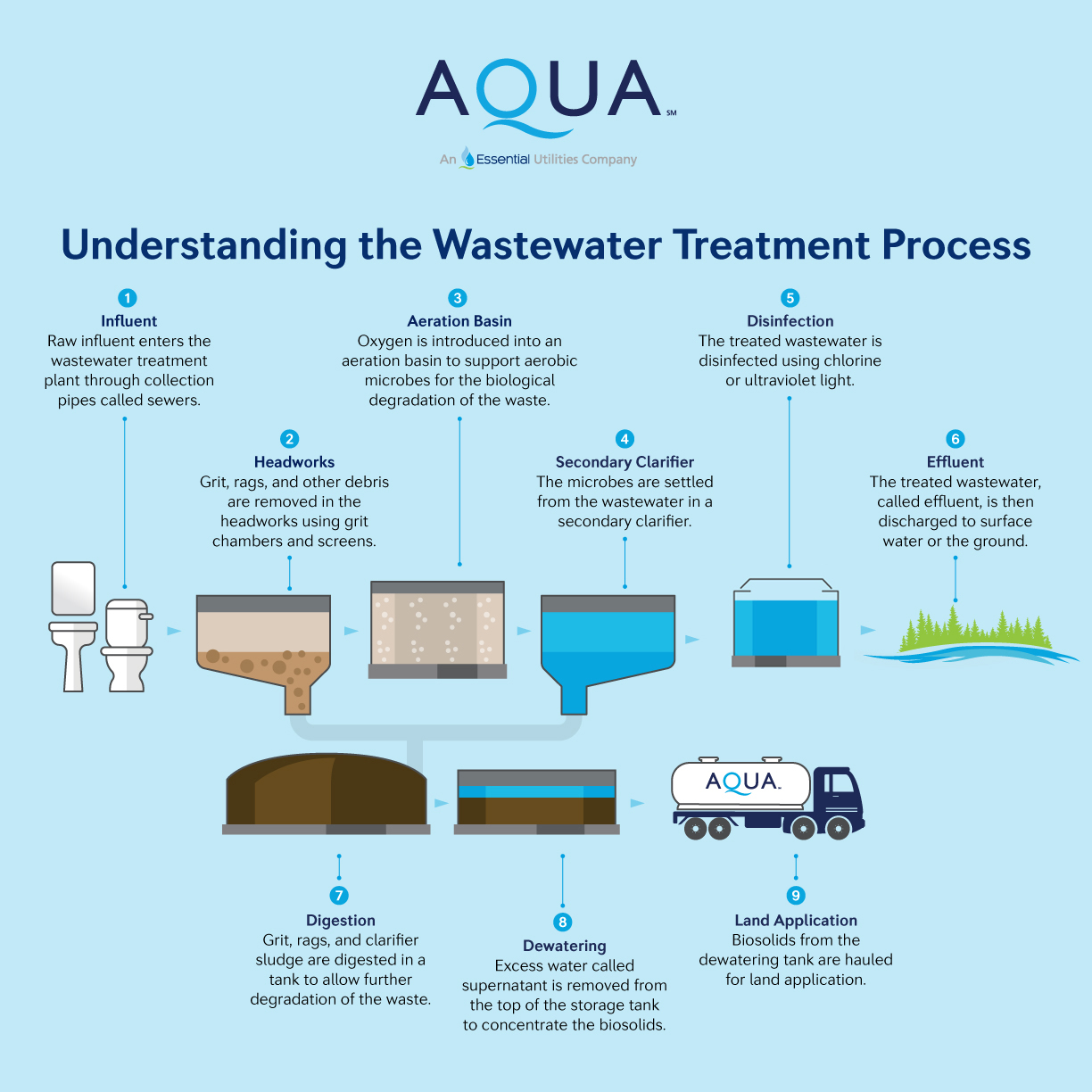
The Aqua Process
Environment:
Aqua collects and treats your community’s wastewater and returns it to the environment.
Community:
We regularly invest in communities with outdated or distressed wastewater systems. We restore these systems to regulatory standards and assume their responsibility so that all in the community can benefit.
Investment:
Over time, our continued investment in our territories’ wastewater management leads to healthier communities with continuously updated infrastructure and technology. Your community is our community, too. Our employees not only work there, they live there as well.
Wastewater Tips & Tricks
What Not to Flush
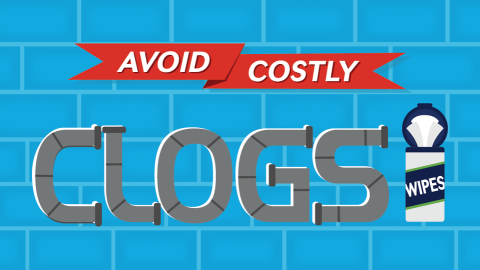
Aqua strongly recommends that you do not flush wipes or paper towels down the toilet. Even wipes marketed as being “flushable” don’t break down and can cause backups in your household plumbing and problems in wastewater collection systems. Please dispose in the trash instead of flushing. Thank you for your help as these actions will ensure our wastewater systems can effectively serve our customers.
What Not to Put Down the Drain
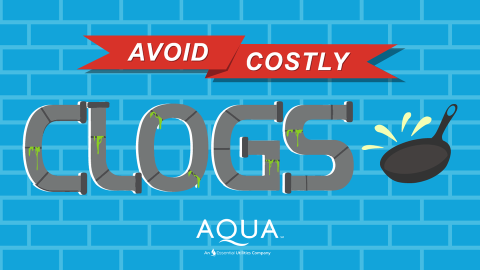
Fats, oils and grease (FOG) can cause havoc on your sewage system. At a very high temperature, FOG flows down the drain in liquid form. However, as it cools off, it can solidify in household drains and, over time, clog and possibly block the pipes which could cause a backup in your home. There is also the potential to impact downstream sewage systems and cause a sanitary sewage overflow. To prevent an issue, pour FOG into empty food cans, and dispose in the garbage.
Homeowner Responsibilities
Much of the equipment we use to provide water and wastewater services is located beneath the ground. The diagrams below detail what pieces are the homeowner's responsibility and which are Aqua's responsibility. Note the second diagram is specific to Illinois.
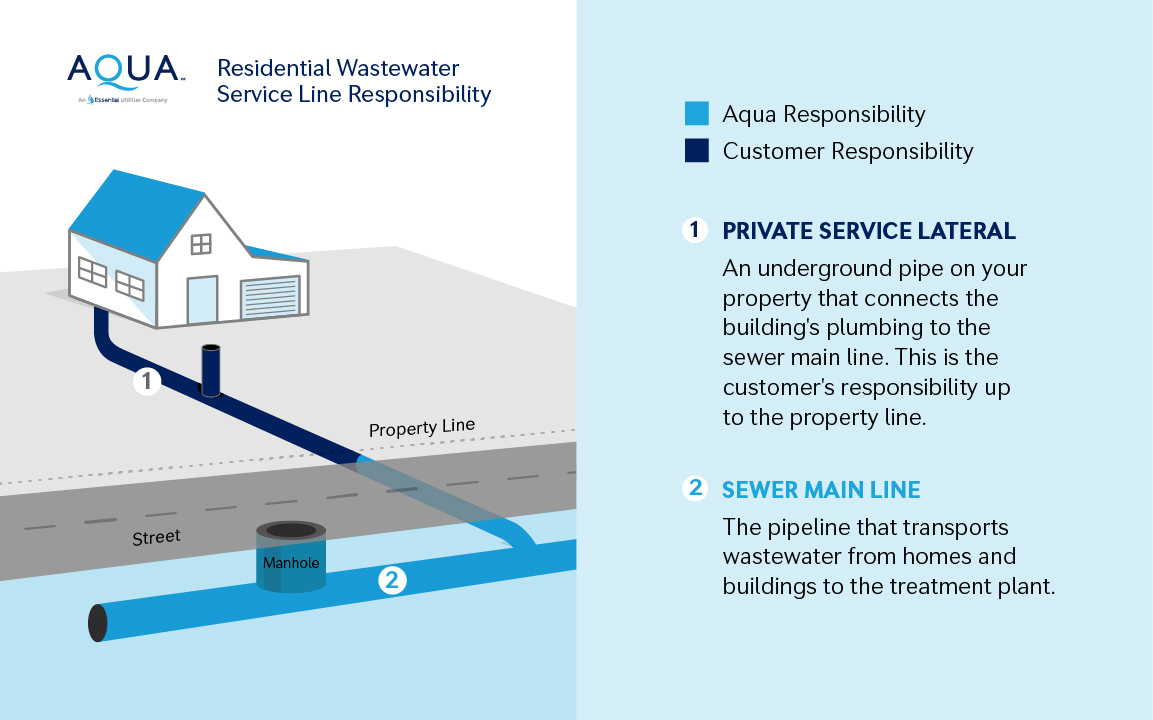
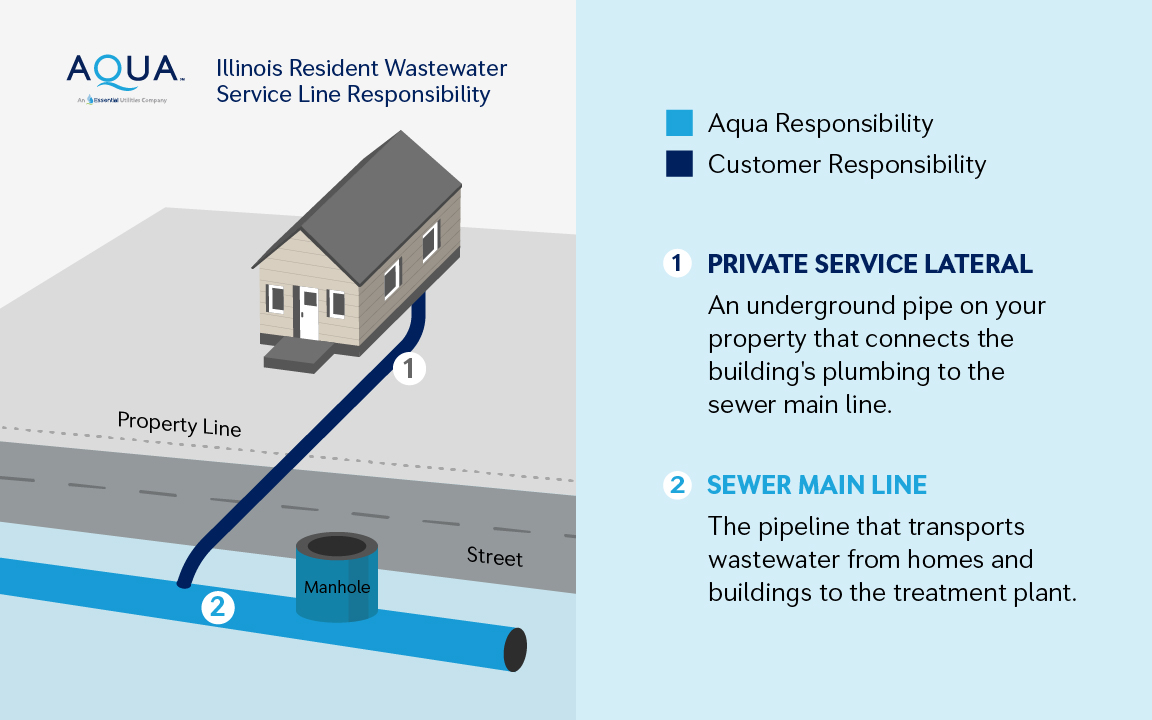
Reporting Sewer Problems
Please report any sewer issues, such as a sewage backup into your home or on a residential or commercial property, by calling Aqua's Customer Service team at 877.987.2782.
